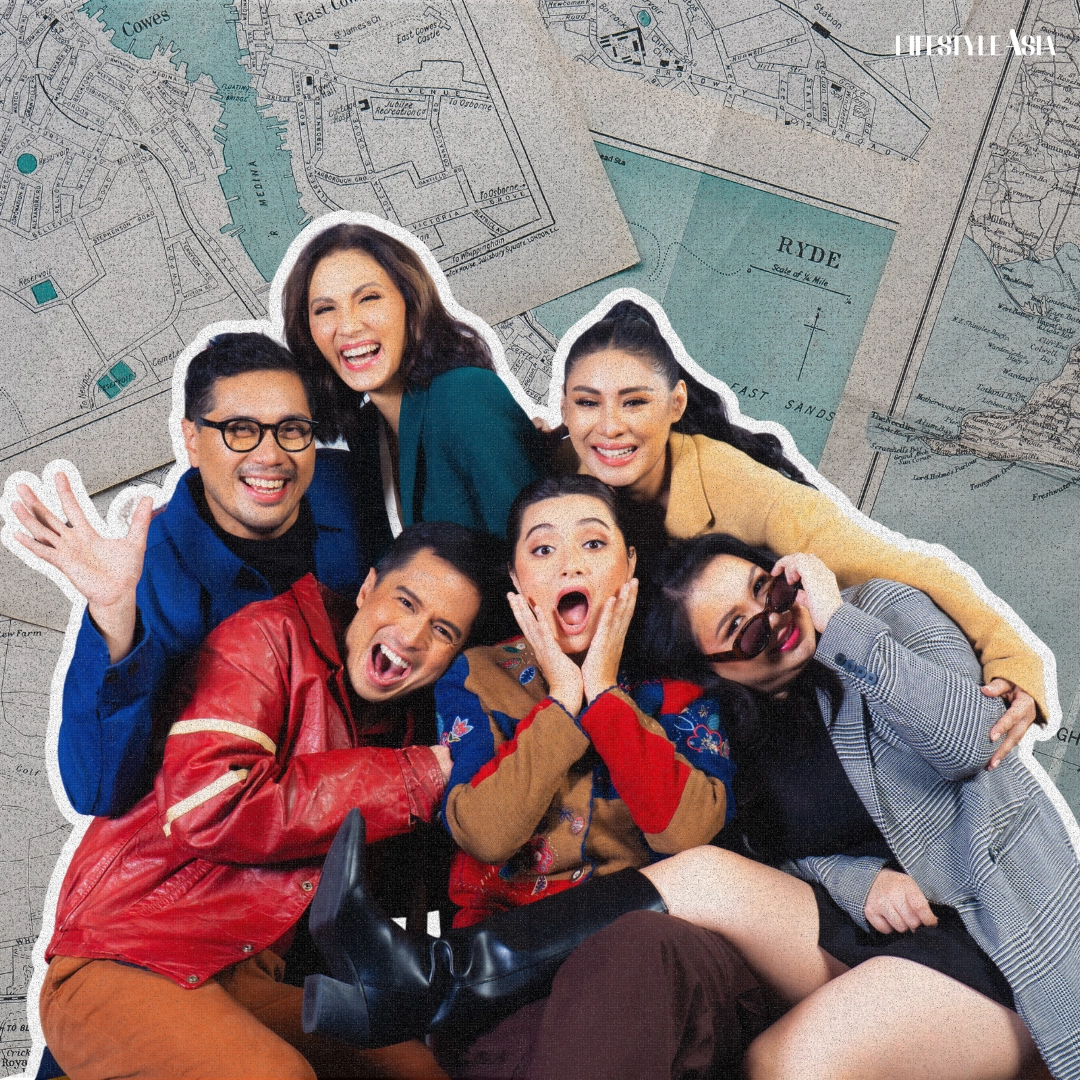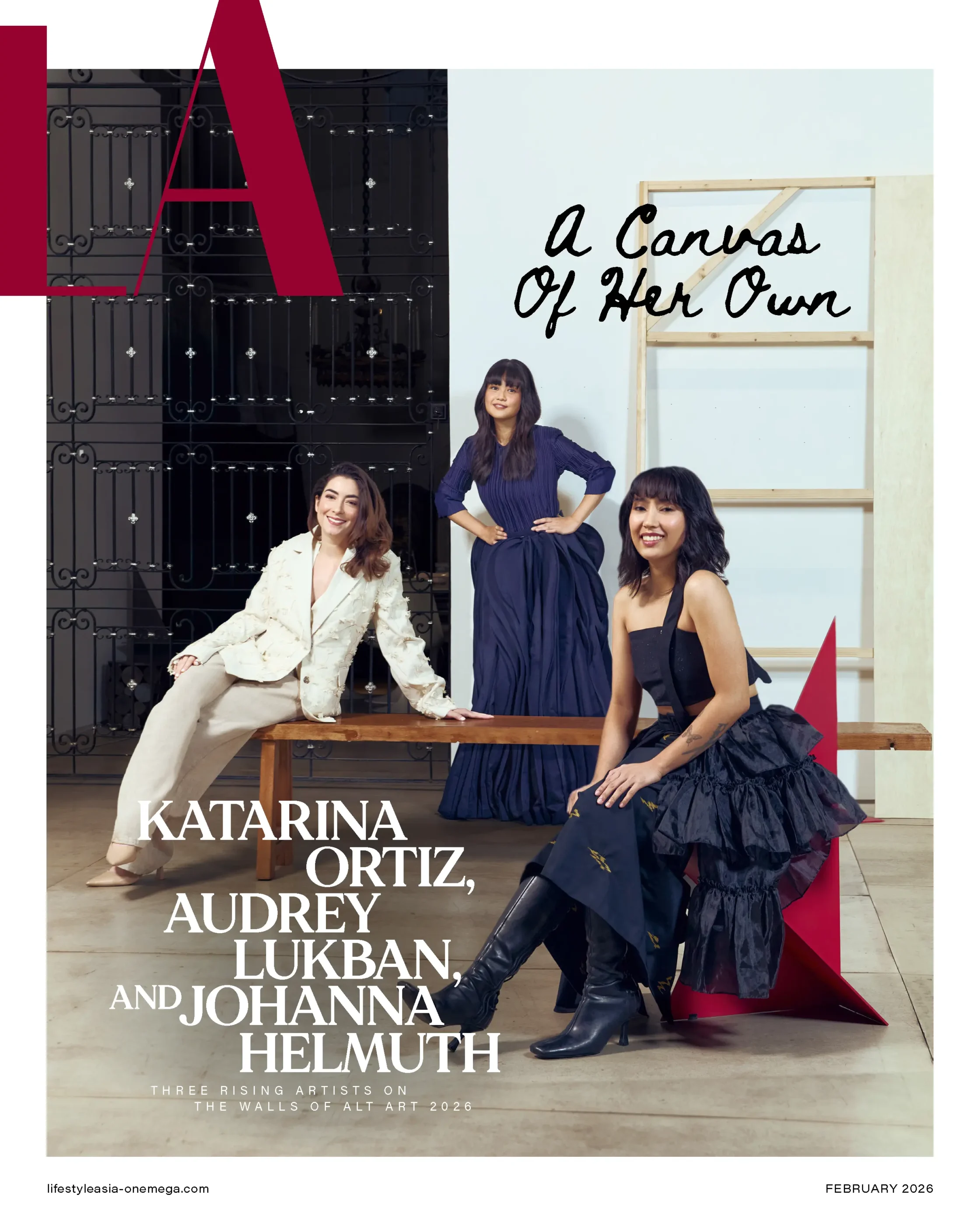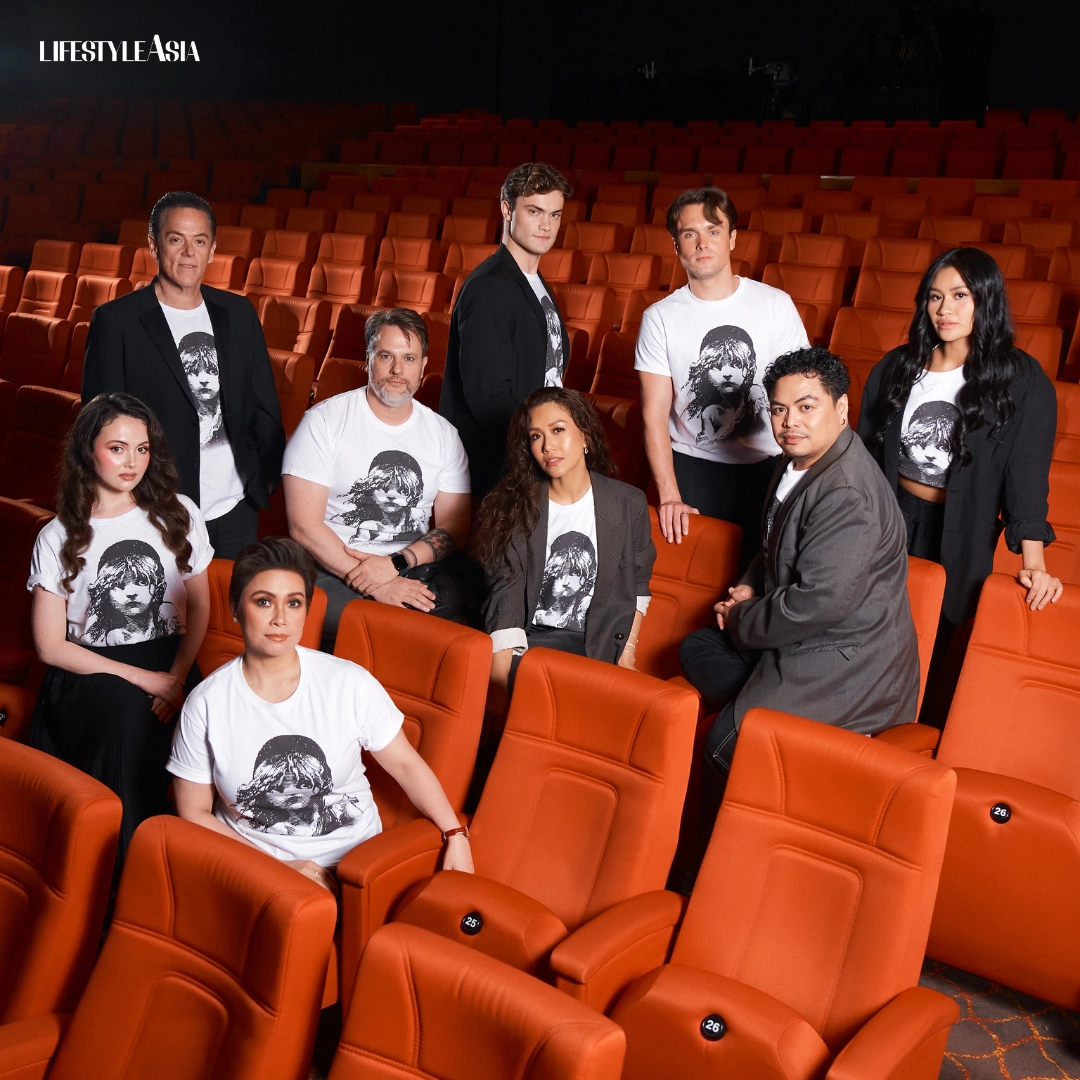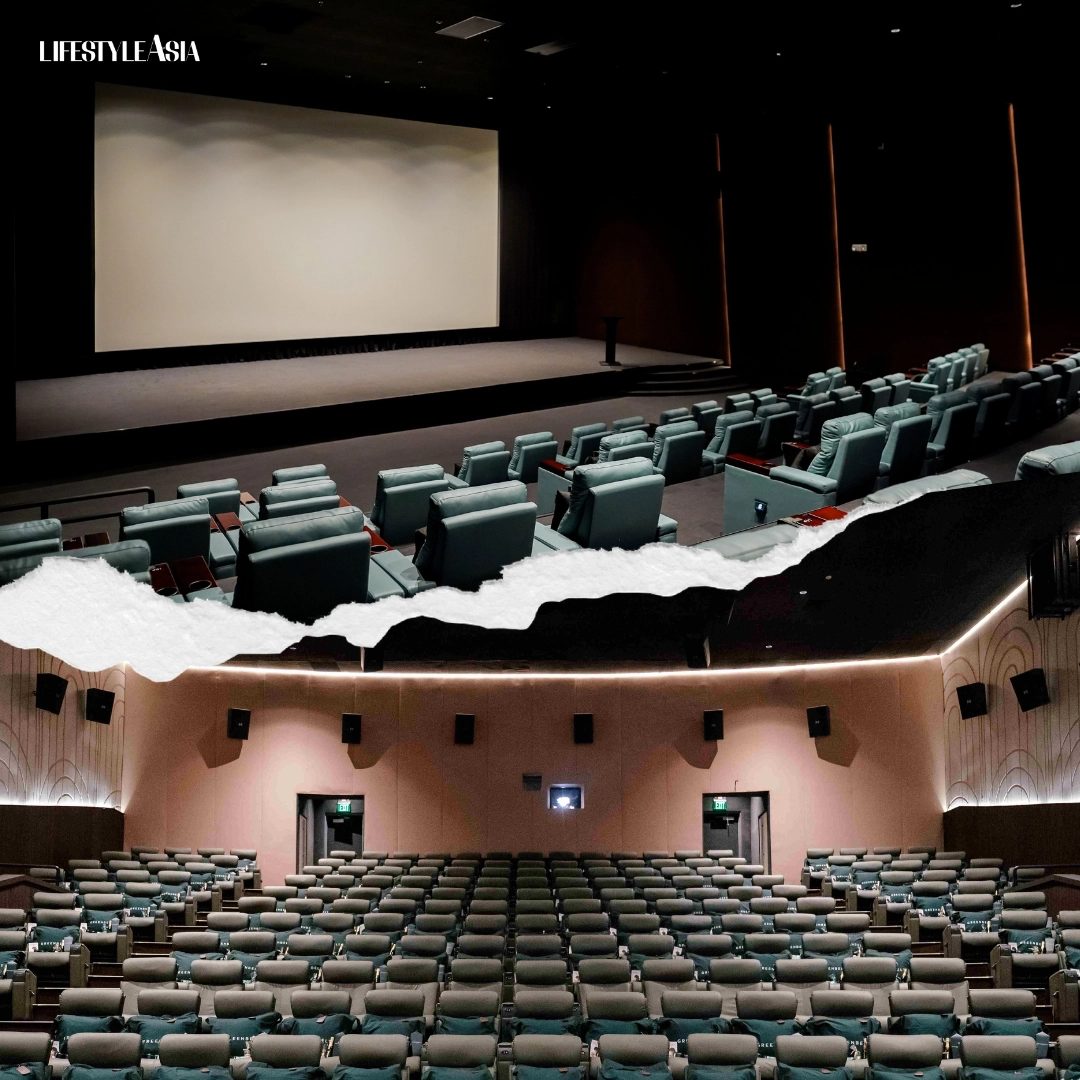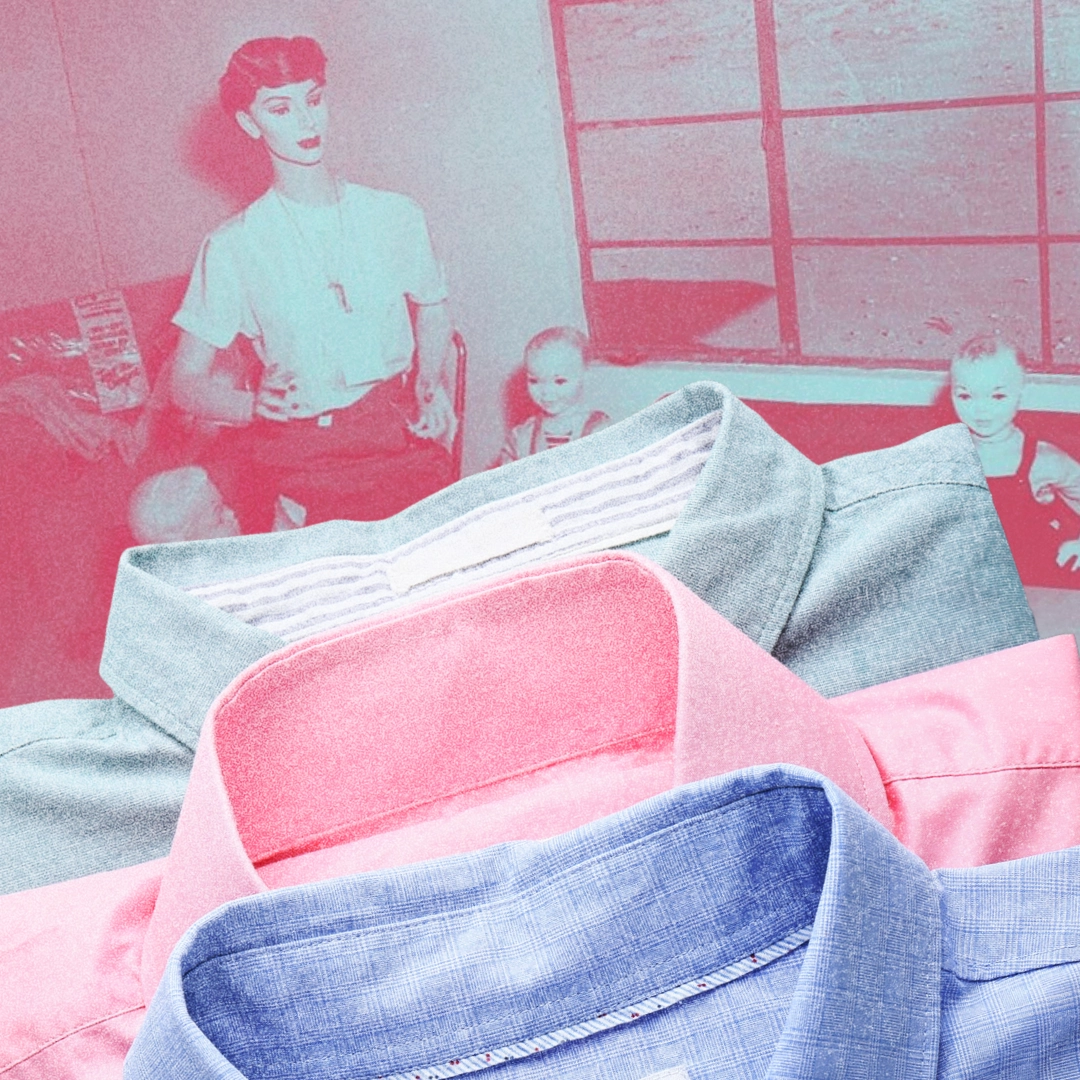Six cast members of the musical “Come from Away” talk about the innately human experiences that form and define a community.
What binds a group of people? Is it geography, that physical space that marks where one home ends and another begins? Or something more than that? I feel some semblance of an answer to this question in a Makati studio space, where rehearsals for the upcoming production of musical Come from Away have been taking place. A diverse group of people converge within a space that feels lived in—racks rife with costumes are situated in its various corners, props are spread out on tables, and papers with handwritten stage directions are plastered on the walls.


Members of the cast start trickling in, a little sleepy from the previous night’s rehearsals, but otherwise peppy and comfortable in each other’s company. Jokes are passed around, sprinkled between playful banter, casual sing-alongs, and thoughtful craft discussions. This warmth—a seemingly natural chemistry and camaraderie—is to my mind, the most captivating part of any production’s behind-the-scenes operations. While reality is different from what’s presented on stage, some aspects remain: the ease in which these actors navigate each other’s existences is a prelude to the spirit of community that lies at the heart of Come from Away.
READ ALSO: GMG Productions Stages “Come From Away,” Its First Filipino-Led Musical
Take Off: About The Musical
Featuring a book, music, and lyrics by Irene Sankoff and David Hein, Come from Away touched the hearts of audiences when it first premiered on Broadway back in 2017. Since then, its story has traveled the world, and now lands in the Philippines with a new vision under GMG Productions and artist group Stages Productions, led by Philippine theater’s finest talents and creatives.

The musical finds roots in a true story: 7,000 airline passengers were forced to land in Gander, Newfoundland in the wake of the harrowing 9/11 attacks on September 11, 2001. With the U.S. Airspace closed, people from all walks of life were left with virtually nothing but the clothes on their back and thoughts of home as the citizens of Gander opened their abodes to them.
While Come from Away is set in an entirely different continent, its thematic threads of hospitality and generosity are universal. The island town of Gander is a small one, somewhat isolated from the disaster—but its people aren’t insular.

Years after its debut, Come from Away still manages to elicit strong emotional responses; not just from its audiences, but also from its cast. The steadfast urgency of the musical’s message is what lends it its timelessness. Or as actress Carla Guevara Laforteza puts it: “It’s a relevant piece to watch at any time; it’s about compassion and being ready to help anyone regardless of their identity. If someone’s in need, and you’re able to help them, you help—and these people did that wholeheartedly.”
You Are Here: An Interview With The Cast Of Come From Away
Come from Away’s storytelling seems, at first, to be fairly simple—sparse, even. Actors position themselves on chairs or tables for a majority of the show, and rely mostly on their performances. This lack of smoke and mirrors means there’s nowhere to hide: being able to pull off an emotionally resonant story with just the essentials is what makes the musical a powerful one, not just conceptually but technically, too.
“Come from Away is a love letter to the power of theater. You have a wealth of people coming together to tell both an epic and intimate story using only our bodies, the chairs, the tables,” explains actor Topper Fabregas. “It’s such a minimal set. It brings us back to what theater is about: communion. It’s an art form that champions sharing, from performers to audience.”




What’s more, each cast member plays the role of multiple characters, switching between Gander residents and plane passengers. This seamless multiplicity in front of a live audience is in itself a magic trick, so it’s no wonder the production entrusted the roles to a skilled group of industry veterans like Laforteza and Lauchengco-Yulo, and next generation theater greats.
There’s a recurring statement throughout Come from Away, rendered through visual markers: You are here. We know where “here” is, at least physically: Gander, Newfoundland. But who are the people that make up the “you,” and where exactly are they—not in terms of location, but in life? We go behind the scenes with six of the musical’s cast members to learn more about the characters they portray.
Becca Coates
Becca Coates’s main role is that of young reporter Janice Mosher—an amalgamation of two real Gander residents, Janice Gouldie and Brian Mosher—who finds herself covering the plane landings during her first day on the job.
“She didn’t even know where the airport was, and suddenly all these passengers arrived, and she was responsible for reporting it,” Coates shares. “It was a very important job, because she had to be the one to update the town and be on Rogers TV’s Channel 9, telling everyone what was going on, making announcements for the donations that were needed.”


Coates sees parts of herself in the earnest reporter, which adds to the joy of portraying her. “It’s very clear that she’s someone who shows up on the first day of a job and wants to do well, is eager to please everybody—she’s out of her depth and just hanging on by a thread, but she gets the work done. And I can say that in every job I’ve ever done, that’s really how I feel. I feel like that today, every single day,” she expounds.
How does being part of a creative re-telling of an actual event affect the ways in which you approach your character and the story overall?
It’s kind of an eerie experience, because 9/11 didn’t happen that long ago. So we had the opportunity to talk to the real people on Zoom and hear their stories. There’s a little bit of pressure because you want to represent these people well—but they always say, ‘Don’t think about us. Just tell the story, and the story will speak for itself.’ And the material does speak for itself: we don’t have to add much to it.
This is a show of trust. So when you get up there, you need to trust the material will do its work for you. I have to trust that it’s going to impact people the way it impacted me when I first read the script. When I first listened to Come from Away before auditioning for the show, I approached it with a bit of cynicism. Like, okay, I know what it’s about: helping people and kindness and joy and warmth. I thought, ‘Okay, I’m ready for this. I’m ready to study this clinically.’ But by the time I got to the finale, you know, I’m just crying.
And then I think, ‘Huh, maybe my heart isn’t completely jaded.’ Your heart would have to be made of stone not to feel something by the end, because it makes you think ‘Wow, life isn’t so bad. Humanity isn’t completely wrecked.’


What did you like most about playing your role?
I’ve been in a lot of shows that had very few people in them, small casts—so this is a new experience for me, being in a cast that’s playing so many people. We have to represent many communities, so we really need to work together as a group in each scene, and I really enjoy that. I get to work on ‘being one’ with a big group of people; that’s what makes Come from Away so special, it’s an ‘ensemble’ in bold, capital letters.
What was your most important takeaway from the musical’s story?
The people in Gander often said they didn’t do anything extraordinary by helping these people and treating them as family. They would say, ‘We didn’t help them because they were stranded. We helped them because they were humans.’
When we talked to the real people on Zoom, Diane Cooper, who was a teacher in the town at the time, said that no one had an extraordinary skill. I loved that. She said no one was special in that way. No one had a lot of money, no one had extraordinary skills that could help the passengers. Everyone just met a need.
If someone had no socks, another person would say ‘Oh, I have socks,’ and give them. If someone was hungry and a vegetarian, someone would say ‘I know how to cook really good broccoli. I’ll do that for you.’ Everyone has a skill that they can contribute, even if they don’t feel like it’s an extraordinary one.
Mikkie Bradshaw-Volante
Playing the role of swing in the ensemble, Mikkie Bradshaw-Volante wears multiple hats as she covers the characters (or “tracks,” as she calls it, since each performer plays different parts as well) of Becca Coates, Menchu Lauchengco-Yulo, and Caisa Borromeo.
“It’s a unique experience learning three people’s tracks,” she laughs. “But I get to have fun and play around with that a lot.”

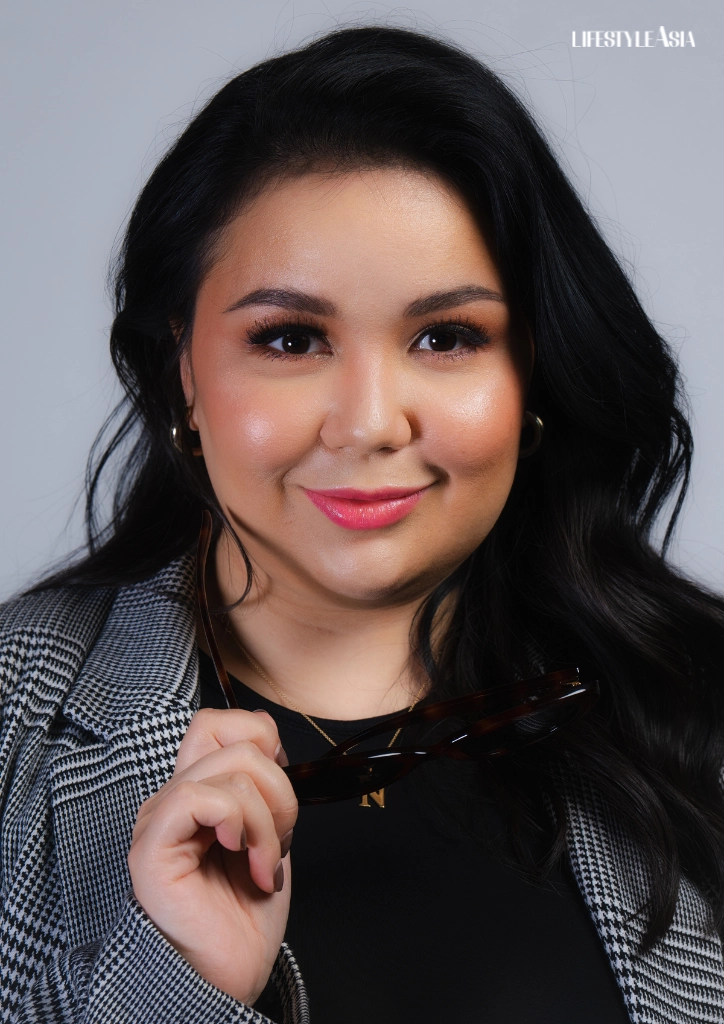
How does being part of a creative re-telling of an actual event affect the ways in which you approach your characters or tracks, and the story overall?
In anything biographical, you have to approach it with a certain level of respect. I’ve played real people a few times, but in this case it’s very special, because I’ve gotten to speak with and meet the characters we’re portraying. And what an opportunity, to be able to hear their accounts of those days.
But we have to be very careful in our approach, so we don’t dramatize too much. We also shouldn’t downplay anything either. It’s about trying to communicate the gravity of what happened, while preventing these real people and experiences from becoming caricatures. We have to approach it with a bit of a respectful distance while still being truthful.

What did you like most about playing your role?
This is actually my first time being a swing or a cover. I don’t necessarily get to ‘move it,’ as we call it, on stage or in the rehearsal room. But I am in a room with all of my idols; this is literally every person I’ve ever wanted to work with. We so admire and respect each other, and I love getting to just sit there and learn from these giants that I’ve been watching my whole life.
That’s one of my favorite things about theater, especially in the Philippines. We don’t have very long runs most of the time, so we have a limited time to relish being in each other’s company. Even if this was to be re-staged, chances are, this combination of people will never happen again. So I make sure to enjoy every moment I get to spend with all of these pillars of Philippine theater.
What was your most important takeaway from the musical’s story?
This is such a unique piece. It’s storytelling in its most basic form, yet done in a way that I don’t think I’ve ever seen; it’s almost primal. It’s really a story about people: how our differences make us the same, how we need each other.
It’s a very Pinoy story, actually. Which is so strange to say for a specifically American event. But we talk about how, in the face of calamities—which we have all the time—people come together. Like during Ondoy, when volunteer centers had to turn away people because so many volunteers showed up. It’s about finding any way to help each other, and that’s something we need to remind ourselves of these days.
Carla Guevara Laforteza
Carla Guevara Laforteza mainly assumes the role of Hannah—a mother to a firefighter son who becomes a frontliner during the 9/11 tragedy. For most of the play, Hannah is overcome with worry: while she understands the necessity and nature of her son’s work, she has difficulties getting in touch with him during the event.
Hers is not an easy role to play, but it’s a part she connects to in more ways than one. Besides being a mother herself, Laforteza was living in New York when the Twin Towers collapsed; and her husband, Godfrey, might’ve experienced the disaster firsthand if it wasn’t for a stroke of good fortune.

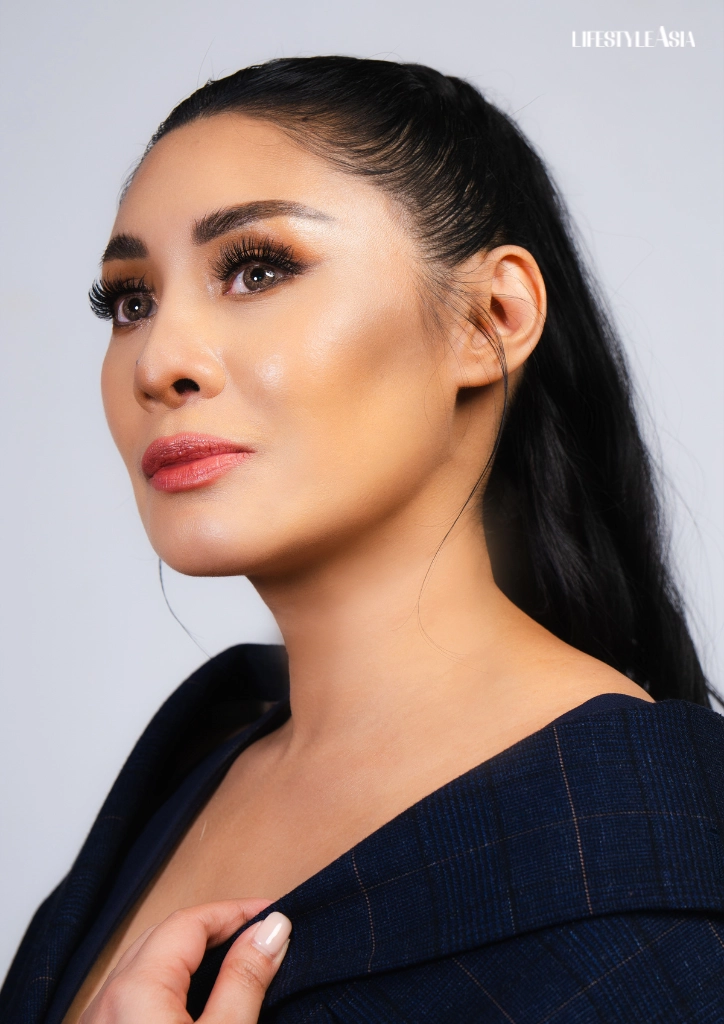
“I had just given birth 10 days before 9/11. My husband was working as a delivery guy, and he had deliveries at the World Trade Center that morning. The only reason why my husband’s alive right now is because his delivery guy was 30 minutes late,” she shares. “It was the same scenario as Hannah: I couldn’t get a hold of him. I was watching TV, taking care of my baby, and then the news played. He only returned home at night, on foot, because all the public transportation was closed.”
How does being part of a creative re-telling of an actual event affect the ways in which you approach your character and the story overall?
I’ll tell you honestly, when I first tried to portray the character, there was so much truth to it because of what I was feeling, because of what I experienced, and because I’m a mom.
I was very, very emotional the first few rehearsals, but then Michael [Williams, the production’s director] talked me through it. He said, at the end of the day, we’re actually telling a story. So you can’t be too real in portraying the character. You cannot be too affected, or else the storytelling will not be as effective. So I think I’ve found that balance, in regard to being able to tell the story sincerely, without being ‘too much’ or being too affected by it.
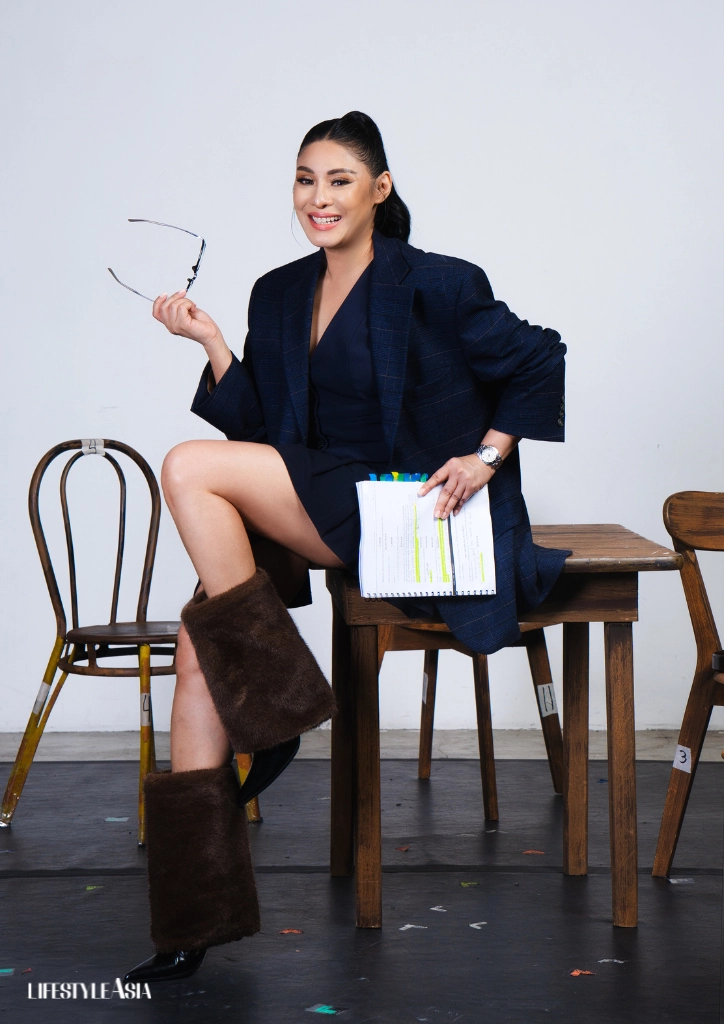

What did you like most about playing your role?
I love my song [“I Am Here”]. I think it’s one of the most difficult songs I’ve had to sing on stage because of the context, because of the background, because of the feelings and emotions of the real Hannah. See, that’s what’s hard when it’s a real person. Usually, when we portray people on stage, we get to create our own version of them. But with this, it’s hard. You have to be true to the character, because she’s a real person.
What was your most important takeaway from the musical’s story?
Life will go on…life must go on. We have to learn to move forward in a good way, and learn from what we experience.
Menchu Lauchengco-Yulo
Even today, aviation remains largely a man’s world. Yet women have already taken big strides to break the glass ceiling—including Beverly Bass, a real pilot that Menchu Lauchengco-Yulo’s main character Beverly is based on.

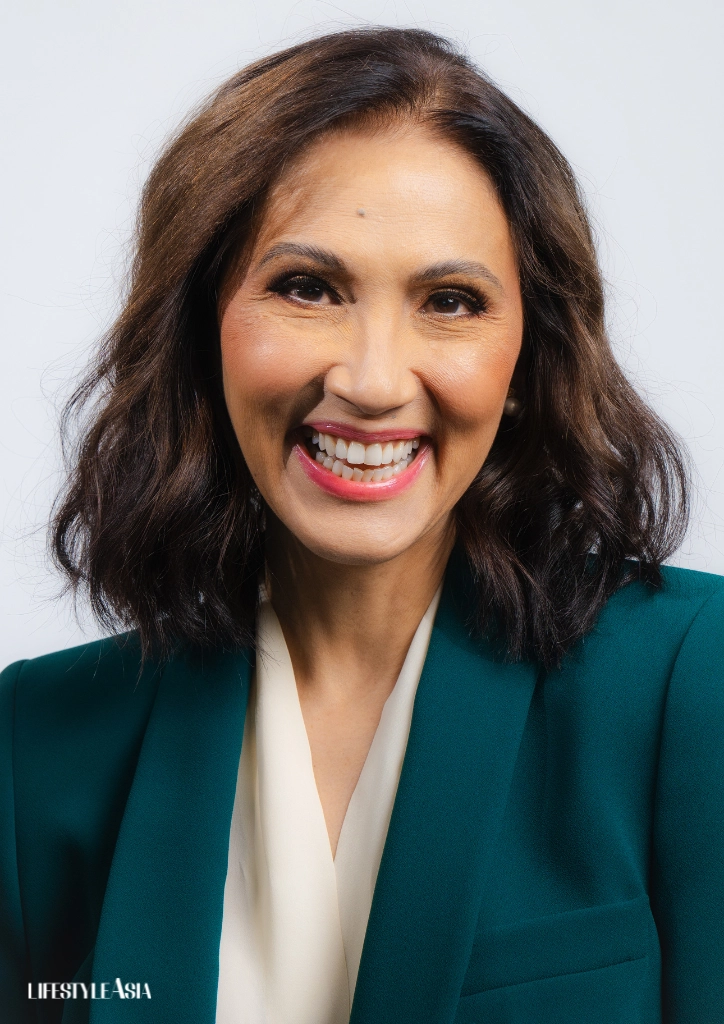
“Beverly was the first American Airlines female pilot in 1986. She battles everything that goes against her, like men telling her that women can’t be captains. So she blazes through the stereotype that women can only be in serving jobs, and she becomes what she sets out to be—she decided that when she was eight years old, nothing was going to stop her,” she explains. “The story is basically about how women are now trailblazers; something that was unheard of in the early days, in a man-dominated world. She’s one of those success stories, and it’s a privilege to play her.”
How does being part of a creative re-telling of an actual event affect the ways in which you approach your character and the story overall?
What makes this very interesting is the person I’m playing is actually still alive, and I had the privilege to Zoom with her and actually get the background to certain lines that were said in Come from Away.
The storytelling here is very abstract and stylized. It’s edited to lines that really move the narrative; we play narrators, we jump from one character to the other. Sometimes you don’t really understand why the line is there, so when she clarified them, I was like ‘Oh, okay, I get it.’ It tells you how to say the line, and that was a big help.

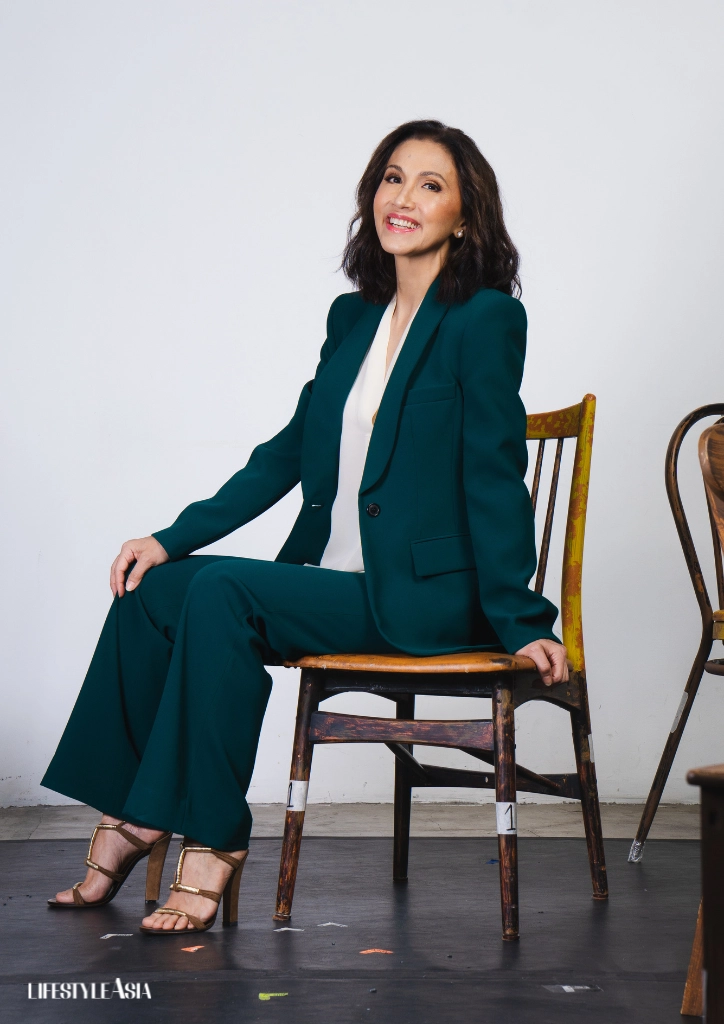
What did you like most about playing your role?
Getting to represent women, in general. I truly believe women should take charge of the world, I think it would be a better place. I think we’re capable of doing anything we set our minds to, and I’m glad to be a representative of that in this musical.
What was your most important takeaway from the musical’s story?
It’s the kindness and generosity that the people from Gander showed to these 7,000 people. I mean they literally said, and it’s in the text of Come from Away, ‘Take what you want from the supermarkets.’ These were complete strangers; the residents had no idea who they were, and yet they were not judgmental. They just opened their hearts. They opened their homes. They expected nothing in return.
It just shows you how kindness can really make the world a better place. Even to this day, the passengers and residents are still in contact with one another. They keep those friendships alive—in such a short time, five days, they created bonds that you could have only created if you’ve lived in Gander for longer.
Topper Fabregas
Like his co-performers, Topper Fabregas plays multiple roles: that of Kevin J., the better half of a queer couple, and Ali, an Egyptian father. “Kevin J. and his partner were on a flight from Paris that was diverted to Gander,” Fabregas explains. “And the show highlights their relationship in those five days they were stuck in the small town.”
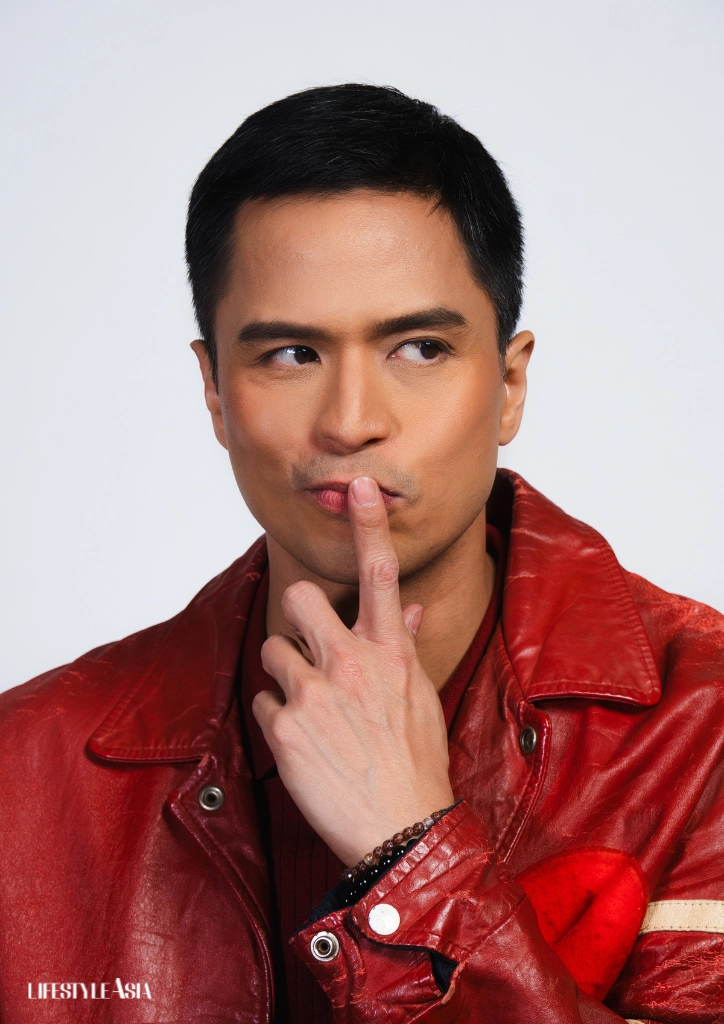

How does being part of a creative re-telling of an actual event affect the ways in which you approach your character and the story overall?
It’s really no different from any sort of character: I always try to approach the role with the same respect and detail as I would any character, because every character that you portray on stage is a human being. So I try to make the performance as fully fleshed out as I possibly can: he’s a silly guy, a bit sarcastic and witty. I know there are some snippets or anecdotes on who he is, but I also know this is still a dramatized version of him.
What did you like most about playing your role?
I love that Kevin J. gets a lot of delicious one liners, but he has a lot of heartfelt moments as well. It’s hard to explain, because we play so many different characters. I switch back and forth between him and Ali, even in the middle of numbers. So I think that’s what’s so lovely about it: that I get to play these two opposites of two different nationalities, sometimes within seconds of each other, and that’s always fun.


I did love learning Ali’s accent—whether or not I’ll nail it, we shall see. [laughs] I hope I do. I was really kind of scared at first. I was like, ‘Oh my god. How am I gonna pull this off?’ But Joel [Goldes], our dialect coach, gave me a whole bunch of tools to help me find the Egyptian accent. I don’t think I’ve been able to kind of enter someone’s character through their accent, and that’s what happened with this one.
What was your most important takeaway from the musical’s story?
It’s something our director Michael told us, which I remember the most. Compassion is kindness in action. It isn’t just about saying ‘Our thoughts and prayers go out to you’ when tragedy happens. What happened in Gander was kindness in action. It was like, ‘How do we lessen the darkness and the tragedy of this whole thing in whatever way we can?’
Gian Magdangal
A community is made all the more richer when they have that one ceaselessly generous person who goes out of their way to ensure its members are happy, safe, and comfortable. Oz Fudge—played by actor Gian Magdangal—the police constable who was on duty in Gander during the 9/11 crash, was that one person for the town and its 7,000 stranded passengers.

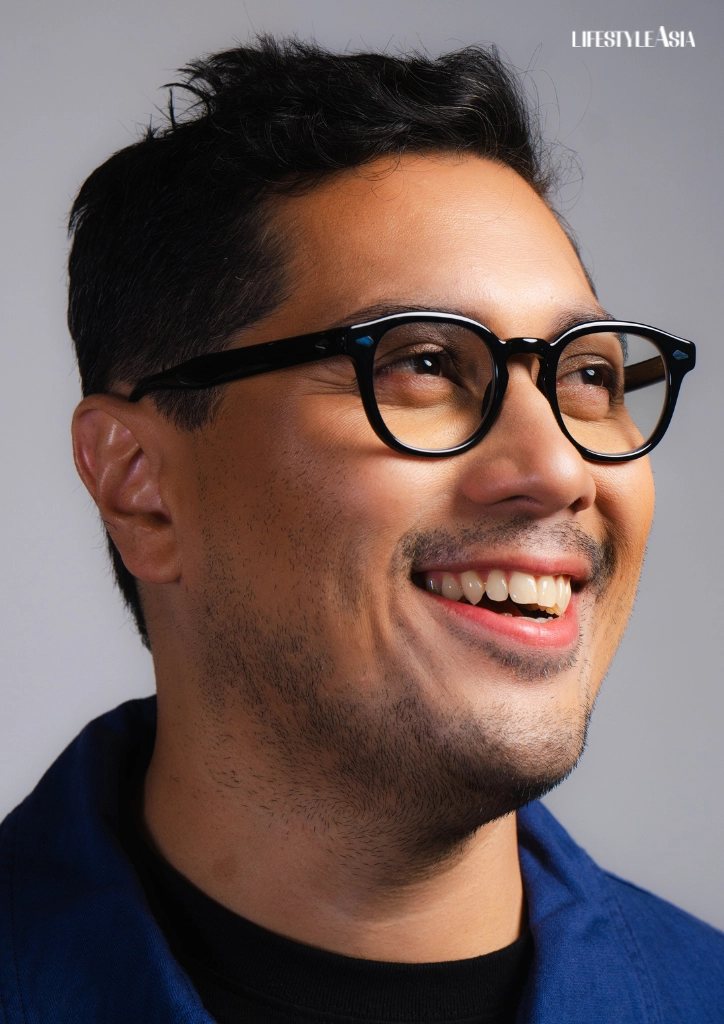
“It’s a small town, the crime rate wasn’t really high. Everyone knows each other, and there was really not much happening there,” Magdangal shares. “Based on the interview I had with him, he seems like a really kind guy. I guess the writers gave him a lot of funny lines because there’s some humor in having a constable in that kind of town: you practically don’t need one. So he ends up doing other simple things for people.”
Perhaps the best anecdote that encapsulates Oz is one Magdangal read in The Day the World Came to Town, an oral history of the events that transpired in Gander. Someone in the United States called Oz asking him to give their friend, one of the passengers in Gander, a hug—and he did exactly that, going through the effort of searching for and embracing a person he barely knew.
“He seems like a character from a children’s story book, and it’s an interesting role to bite into—especially since most of my past roles were villains. It’s a good change of pace,” he laughs.
How does being part of a creative re-telling of an actual event affect the ways in which you approach your character and the story overall?
I think the reason why Come from Away was written as very abstract, is because you don’t really have to be ‘realistic’ to play these characters. Oz is a representative of all the Oz Fudges in the world: everyone has someone like that in their lives. I had a driver who was a barangay tanod [a local peace and safety officer within a small village], Ed. He was just so helpful, he would volunteer to arrange neighborhood basketball tournaments, or feed the dog, open the gate, without you telling him anything; he makes you feel comfortable just by being there. Those are the real Oz Fudges in the world—and we need those kinds of people now more than ever.
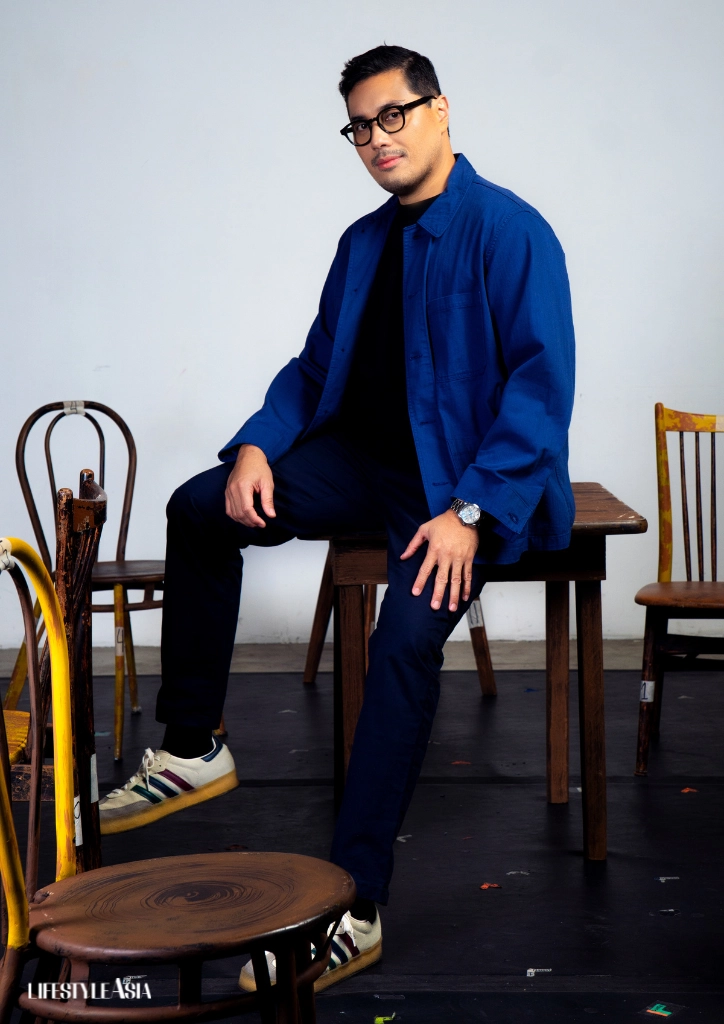

What did you like most about playing your role?
It made me realize that I need to be someone like that. I need to be an Oz Fudge in my own life; I’m kind of the opposite, a chill person who keeps to himself. I realized I should still make an effort to help other people even with a busy life. Because Oz probably had a lot of things to deal with too; and he was part of the army, he could have had other bigger opportunities. But he stayed local. You have to be aware of your surroundings, know where and how you can help.
What was your most important takeaway from the musical’s story?
When you see the set design of Come from Away, there’s this big ‘You are here’ sign. And that phrase really stuck with me. You see that sign a lot when you go on a vacation in another country. It asks you: ‘Hey, where are you?’ It reminds you to think about where you want to be, or where you want to go, and it’s a big help for anybody who feels lost.
The Passage Back: What Does “Home” Mean To The Cast And Their Characters?
When I asked the cast to quote any line or lyric from Come from Away that really struck them, most mentioned the exact same one from “38 Planes (Reprise)/Somewhere In The Middle Of Nowhere”: You found your heart, but left a part of you behind.

In their own ways, each character goes through some kind of change. Passengers form lifelong bonds—even Hannah, who suffers the most, finds comfort in her friendship with a resident named Beulah. Then they leave, but they also don’t. A part of them will remain in Gander; they’ll never be the same people they were before. This sentiment pushes past the fourth wall, seeping into the lives of the show’s performers. Bradshaw-Volante expresses it best: “You’re always going to want to come back to that place. And I feel like that applies to me in every single production I do. It’s almost like I’m finding more of myself, but at the same time giving so much of myself to something, and therefore I’m a little bit less and a little bit more each time.”
We return to the question posed at the very beginning: what binds a group of people? There’s no clear answer to it, but we can start here: beyond place, and far beyond any aspect of identity, it might just be the ways in which they touch each other’s lives. In Come from Away, people don’t just offer up a home: they become one.
Come from Away runs with shows throughout June 2025 at the Samsung Performing Arts Theater. For more information and tickets, visit TicketWorld.
Photography by Grant Babia, assisted by Sam Anciano
Shot on location at Nhue Creative Studio
